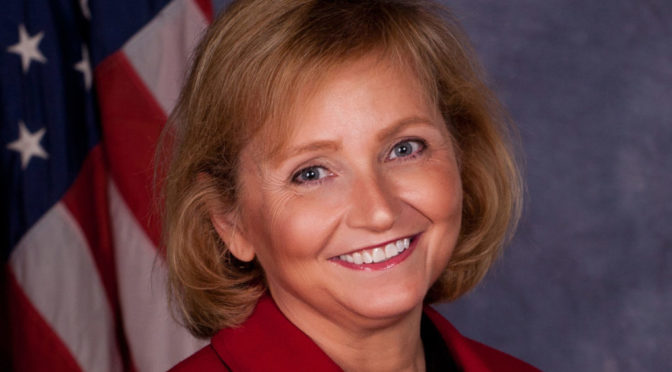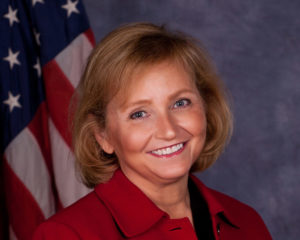Governor Kelly announces revised mass gatherings guidance to include religious services
As part of ongoing efforts to mitigate the spread of COVID-19, today Governor Laura Kelly rescinded Executive Order #20-14 and replaced it with Executive Order #20-18, which primarily brings our religious institutions and religious and non-religious funerals in line with the previous order that limited public gatherings to 10 or fewer people.
Although religious institutions and funerals previously were exempt from this 10-person limit, they now will need to comply with this rule, effective at 12:01 p.m. Wednesday.
“As Holy Week gets underway – and with Kansas rapidly approaching its projected ‘peak’ infection rate in the coming weeks – the risk for a spike in COVID-19 cases through church gatherings is especially dangerous,” Kelly said. “This was a difficult decision, and not one I was hoping to have to make.
“But I’ve said repeatedly during this crisis that we will adjust to circumstances as they develop to make sure we do everything we can to protect Kansans.”
E.O. #20-18 does not ban religious gatherings or funerals. Instead, both conducting and attending religious services and funerals remain designated “essential functions” and cannot be prohibited by local orders. However, gatherings must be limited to 10 individuals at a time and clergy, staff and attendees must adhere to appropriate safety protocols as outlined in the statewide stay-home order – including social distancing, hygiene and other efforts.
“I encourage all faith leaders to embrace alternative forms of worship that do not involve in-person congregation,” the Governor said. “Churches are livestreaming services and bringing their parishioners together over Facebook Live for Bible Study. They also are looking for alternative ways to observe their rituals.”
On April 3, the Kansas Department of Health and Environment issued new guidance to support churches in their transition to this method of worship, which can be viewed at http://www.kdheks.gov/coronavirus/toolkit/Church_Sevices_Guidance.pdf.
The Governor said that in speaking with several faith leaders across Kansas, she was encouraged and deeply grateful that many religious institutions across the state have already recognized the danger of congregating in person and have proactively taken steps to celebrate in an alternative way. See statements from several below:
Reverend C.L. Bachus of Kansas City Kansas’ Mt. Zion Baptist Church: “I am calling the Christian community to follow Governor Kelly’s executive order as it relates to social distancing and limited gatherings. We’ve had some difficult experiences in the religious community that makes this action necessary. I encourage you all to obey the mandate. It’s time we use good common sense as well as exercise our faith during this difficult time. We are all in this together.”
Catholic Monsigner Stuart Svetland of Donnelley College in Kansas City, Kansas: “Everyone recognizes the religious liberty and first amendment rights, but with rights also comes the duty to serve the common good. Right now, it is necessary for religious institutions to serve the common good and our common health by following this reasonable request from the Governor.”
Dr. T. La Mont Holder, President of Missionary Baptist State Convention of Kansas: “In light of the COVID-19 Pandemic, it is imperative that pastors and churches comply fully with the state and local gathering restrictions of (10 or less) that have been implemented by our Governor, Laura Kelly, and the healthcare experts who are working with her daily to provide the best policies and practices for reducing the spread here in Kansas.
This is no time for spiritual extremism. It is the responsibility of each pastor and church to act responsibly and lead by example. To continue to place the health and welfare of our church members, and the community at large in danger is biblically and morally irresponsible and reckless.
In these difficult times we must endeavor to be a part of the solution and not a part of the problem. To defy the meeting restrictions is negligent, selfish and reprehensible. As a member of the clergy, I understand that as a community of faith the church is our safe place. However we must not turn our safe places into sanctuaries of predation.
I implore EVERY pastor, church leader and parishioner across the state of Kansas to rethink your actions during this vulnerable time in our nation and particularly in Kansas. We are in a state of emergency and our actions in these critical moments will determine how soon we get beyond this healthcare emergency.
Join me, the Governor, and our trusted healthcare experts in combatting this unprecedented health crisis in our country. Let’s unite to fight this outbreak and in the end we will conquer COVID-19. #KansasStrong!”
Rev. Shriley D. Heermance, Pastor at Historic St. Mark’s A.M.E Church: “Today we were informed of the Honorable Governor Laura Kelly’s Executive Order to remove the exemption that allowed for members of the Faith Community to gather for worship, per the established distancing order. The Historic St. Mark’s African Methodist Episcopal Church (Topeka, Kansas) stand in support of this difficult decision. Sharing with others of the Faith Community, who believe that through this crisis, we are safer at home. We are grateful to have opportunity to continue in Worship, study, and official meetings through the social media and teleconferencing. Our hearts are filled with sorrow over the 11,000-plus lives lost to the COVID-19 virus. We are thankful for all those who serve through this crisis on the front line and will remain prayerful until at last our God has healed our State, our Nation, and our World.”

